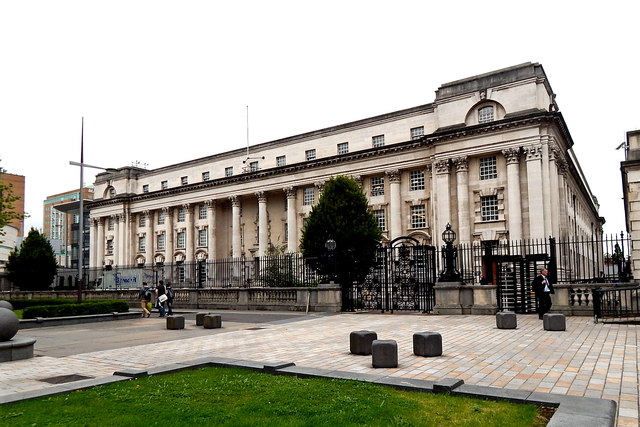
The Court of Appeal in Belfast
It follows concerns about the credibility of evidence provided by RUC detectives who interviewed him while he was in custody.
John McDevitt, formerly of Lisfannon Park in the Bogside, was convicted of the murder of Private Neil Clark on Easter Monday 1984 in Derry city.
Released from prison in 1995, Mr McDevitt is still on licence which means he can be returned to jail again if ever deemed be a risk to public safety at the say so of the North’s Secretary of State.
The Criminal Cases Review Commission (CCRC) has now referred Mr McDevitt’s convictions to the Court of Appeal in Belfast.
It said it considered the credibility of officers involved in questioning Mr McDevitt to be “substantially weakened”.
The independent CCRC said after “extensive analysis” there was “a real possibility the Northern Ireland Court of Appeal will conclude Mr McDevitt’s conviction is unsafe”.
Private Neil Clarke was a 20-year-old member of the Second Battalion of the Queen’s Regiment. He was part of an armoured patrol at Bishops Street on Easter Monday, April 23, 1984.
As the patrol passed along the street it was attacked by rioters who threw petrol bombs made from sweet jars.
When his uniform caught fire, Neil Clarke jumped from the back of the Land Rover he was travelling in. As he did so, an IRA sniper opened fire.
He was struck in the head by a single round and died instantly.
Two other British soldiers were also wounded in the attack.
Mr McDevitt was arrested along with seven others and charged with a total of 11 offences.
They included murder, conspiracy to cause grievous bodily harm and offences relating to the creation and use of petrol bombs.
He was interviewed 23 times over the course of five days without the legal advice of a solicitor.
During the first 16 interviews he denied any involvement in the murder of Pte Clark.
However it was alleged he later admitted driving gunmen to the scene of the crime but he disputed this at his trial at Belfast Crown Court.
In 2019, he applied to the CCRC submitting claims against the RUC detectives who carried out the interviews at the notorious Castlereagh interrogation centre in Belfast.
The officers in the case had previously been criticised at the Court of Appeal in its decision of the Queen v Latimer, Hegan, Bell and Allen, also known as the ‘UDR Four’.
The CCRC said in a statement: “Having considered the Court’s findings in the Latimer case, the CCRC considers that the credibility of the officers as witnesses of truth in criminal proceedings is substantially weakened.
“This referral follows a court decision in another case referred by the CCRC, which this year resulted in the Court of Appeal quashing a conviction. This was also based on the Latimer case.”
Tags:




